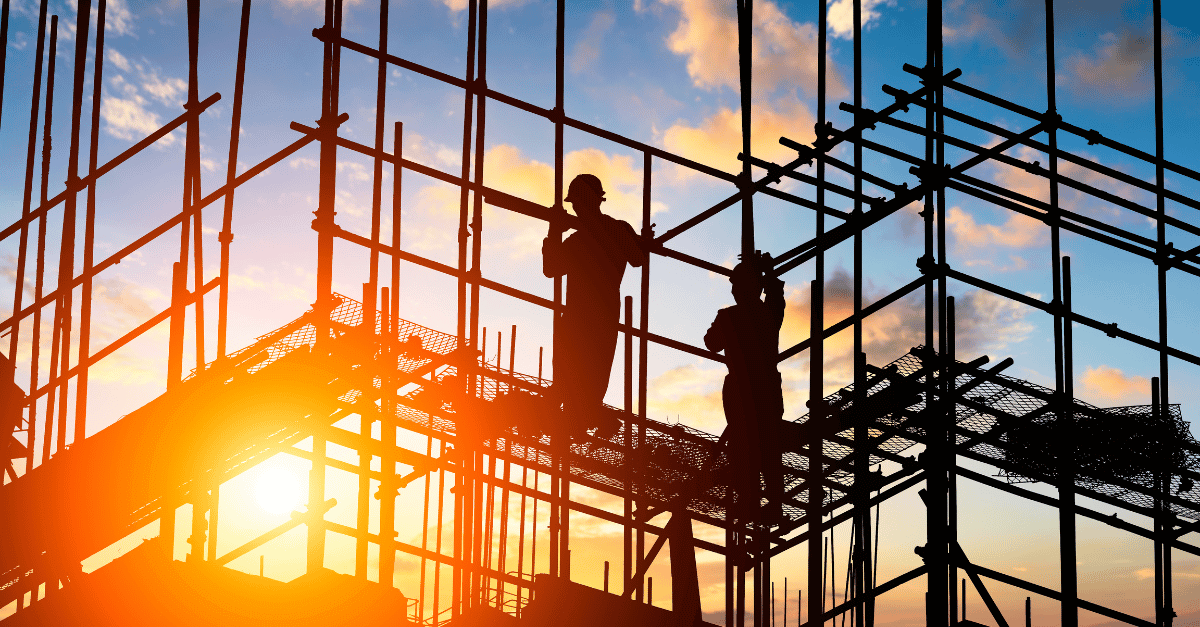You might be tempted to roll your eyes at the term “employee engagement,” often dismissed as a warm and fuzzy concept reserved for office settings. It’s an abstract idea, not easy to define and almost impossible to truly measure. But consider: for industries like construction, employee engagement can mean life or death. An employee who’s disengaged, or not paying attention, letting muscle memory or habit guide their actions, can put their life or the lives of others in danger.
Should the Construction Industry Care About Employee Engagement?
Here are a few other reasons you should care about construction employee engagement.
According to an article published in the peer-reviewed EconJournals, disengaged employees are:
- Less cooperative and collaborative, more antagonistic
- Unreceptive to feedback
- More prone to absenteeism
- Less productive
If none of that speaks to you, this should: disengaged employees results in higher turnover, which costs money. It costs employers an estimated 33% of a worker’s salary to hire that worker’s replacement. Then there are the indirect costs from the knowledge and experience lost when that worker leaves.
Construction Employee Engagement Strategies
Engaging construction employees effectively can lead to safer work environments, higher productivity, and significantly lower turnover rates. But how do you improve construction employee engagement when the “office” is a job site, or hundreds of feet in the air? Here are a few ideas.
Effective Onboarding
Proper onboarding sets the stage for construction employee engagement and integrates them into the company culture from day one.
- Conduct safety orientations that involve interactive simulations, ensuring new hires understand the risks and safety practices before they set foot on site.
- Pair new employees with experienced mentors who guide them through the first few months, offering advice and support as they acclimate.
- Use digital checklists that new hires can access via mobile devices to track their progress in learning job essentials and company policies.
An engaging onboarding process not only educates but also builds a foundation of loyalty and safety consciousness.
Flexible Work Time
Flexibility in work can improve workers’ job satisfaction and balance between personal life and work demands.
- Offer flexible work schedules. Yes, it can be done, even in construction. Weifield Group Contracting has experienced success with a four-day work schedule.
- Offer staggered start times to allow employees to avoid heavy traffic and to better align work hours with childcare or other personal responsibilities.
- Allow workers to swap shifts with approval, providing autonomy to manage personal commitments while maintaining productivity.
“Weifield has run numerous jobs on both a straight 4/10 schedule—where the entire crew works the same four 10-hour days—and a rolling 4/10 schedule—where overlapping crews each work four days but whose shifts cover all five days of the work week.”
—Karla Nugent, founder and CRO of Weifield Group Contracting
Flexible work shows employees that their time is valued both on and off the job, enhancing their engagement.
Continuous, Immediate Feedback
Immediate feedback helps correct behaviors and reinforce good practices on the spot, enhancing learning and safety.
- Use real-time communication tools like walkie-talkies or construction management apps to provide instant feedback.
- Schedule end-of-day debrief sessions where supervisors highlight what went well and what needs improvement.
- Implement a peer-review system where employees can give and receive constructive feedback from colleagues.
“If you wait too long to give guidance, everything about it gets harder… Guidance has a short half-life. If you wait to tell somebody for a week or a quarter, the incident is so far in the past that they can’t fix the problem or build on the success.”
—Kim Scott, Radical Candor
Continuous feedback nurtures a culture of continuous improvement and responsiveness.
Employee Development and Training
Investing in employee development shows a commitment to their future within the company.
- Offer tuition reimbursement for courses related to their work, such as advanced safety training or management skills.
- Organize regular workshops and seminars that address new technology, techniques, and regulations in the construction industry.
- Develop clear career pathways that show employees how they can progress within the company.
Development opportunities not only enhance skills but also foster a sense of growth and purpose.
Technology to Modernize the Workplace
Modern technology can streamline workflows, enhance safety, and show employees that the company values innovation.
- Integrate project management software that allows for better tracking of tasks and deadlines.
- Use drones for site inspections, which can reduce risks and save time.
- Adopt wearable technology that monitors health metrics and environmental conditions to keep workers safe.
Leveraging technology not only improves efficiency but also positions the company as a forward-thinking employer.
Recognize and Reward
Recognition and rewards can significantly boost morale and motivation on the job site.
- Offer an online rewards program in which employees can redeem points for things like concerts, family trips, tropical vacations, flights, electronics, video games, and more.
- Implement an employee of the month program that highlights individual contributions to safety or productivity.
- Offer bonuses or additional paid time off for meeting or exceeding project goals.
- Organize annual awards dinners to celebrate team and individual successes.
Regular recognition reaffirms the value of employees’ hard work and dedication to the company.
Participation in Decision-Making
Involving employees in decision-making processes empowers them and enhances their investment in outcomes.
- Hold regular town hall meetings where employees can voice concerns and suggest improvements.
- Include employee feedback in tool and equipment selection processes.
- Create safety committees that include workers from various levels to discuss and implement safety protocols.
Participation builds a collaborative environment where employees feel their opinions are respected and valued.
Foster a Positive Work Environment
You don’t have to have an office with motivational posters on the wall to create a positive work environment for construction employees. You can develop company values and policies that encourages teamwork and reduce conflict, leading to higher job satisfaction.
- Organize team-building activities, such as group outings or problem-solving challenges.
- Establish open-door policies where employees feel comfortable discussing issues with management.
- Celebrate milestones like project completions or safety records with team lunches or small parties.
A supportive and positive environment fosters strong relationships and loyalty among team members.
Communicate Clearly and Regularly
Clear and regular communication ensures that all team members are informed, aligned, and engaged with their work.
- Conduct weekly briefings to discuss project updates, changes, and expectations.
- Use a centralized digital dashboard where updates and schedules are posted for easy access by all employees.
- Encourage supervisors to hold regular one-on-one check-ins with their team members to discuss progress and concerns.
Effective communication bridges gaps between management and staff, ensuring that everyone is on the same page and committed to the project’s success.
To Wrap Up
Dismissing “construction employee engagement” as mere fluff is a costly oversight. Implementing practical measures like flexible scheduling, continuous feedback, and investment in employee development not only enhances safety and productivity but also fortifies your bottom line. By fostering a workplace where technology, recognition, and participatory decision-making are the norm, you cultivate a workforce that is not only more satisfied, but deeply committed. Recognizing the value of engagement in construction isn’t just about following trends—it’s about building a sustainable and profitable future.



